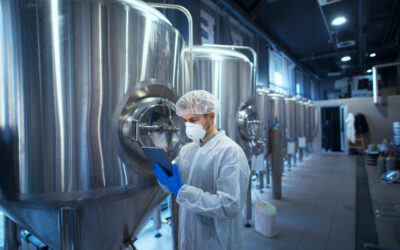Biofuels, derived from biomass, represent a promising alternative to fossil fuels and a pathway toward a more sustainable energy future. As the world grapples with the urgent need to reduce greenhouse gas emissions, the role of biofuels is becoming increasingly important. Chemical engineers are at the forefront of this endeavor, working to improve the efficiency of biofuel technologies, reduce their costs, and address challenges related to their integration into the existing energy infrastructure.
The Importance of Biofuels
Biofuels, such as ethanol and biodiesel, offer several advantages over traditional fossil fuels. They are renewable, derived from organic matter that can be replenished over time. They can also help reduce greenhouse gas emissions, as the carbon dioxide released during their combustion is offset by the carbon dioxide absorbed by the plants used to produce them.
However, the production and use of biofuels also present several challenges. These include the need to improve the efficiency and sustainability of biofuel production processes, reduce the cost of biofuels to make them competitive with fossil fuels, and address technical and infrastructure challenges related to the use of biofuels in existing engines and fuel distribution systems.
Biofuel Production
Chemical engineers play a crucial role in addressing these challenges. They are involved in designing and optimizing biofuel production processes, which often involve complex chemical reactions and separations.
For example, the production of ethanol from corn or sugarcane involves the fermentation of sugars by yeast to produce ethanol and carbon dioxide. Chemical engineers work on optimizing this process to maximize ethanol yield, minimize the production of unwanted byproducts, and reduce energy consumption.
Chemical engineers are also involved in developing advanced biofuels, such as cellulosic ethanol and biodiesel from algae. These biofuels can be produced from non-food sources, reducing the competition with food production and potentially offering greater greenhouse gas emission reductions. However, their production processes are more complex and currently more expensive than those for conventional biofuels.
Chemical engineers are developing new catalysts and biocatalysts, designing novel reactors, and optimizing process conditions to improve the efficiency and reduce the cost of these advanced biofuel production processes.
In addition to their work on biofuel production, chemical engineers are also involved in addressing challenges related to the use of biofuels. This includes developing additives to improve biofuels’ compatibility with existing engines, the design of processes for blending biofuels with fossil fuels, and assessing the infrastructure changes needed to distribute and use biofuels.
Pathway to a More Sustainable Future
Biofuels represent a promising pathway toward a more sustainable energy future. However, realizing their potential requires addressing several technical and economic challenges. Chemical engineers, with their unique blend of skills in chemistry, biology, and process engineering, are at the forefront of this effort.
Through their work, chemical engineers are not only contributing to the development of sustainable energy technologies but are also helping to address one of the most pressing challenges of our time: the need to reduce greenhouse gas emissions and mitigate the impacts of climate change. As we look to the future, the role of chemical engineers in developing and deploying biofuels will continue to be crucial.
Case Study: The Production of Biodiesel from Algae
Algae-based biodiesel represents an exciting frontier in the biofuel industry. Unlike traditional biofuels, often derived from food crops like corn or sugarcane, algae can be grown on non-arable land and produce much more fuel per acre. However, algae-based biodiesel production presents several technical challenges, and chemical engineers have been instrumental in addressing these.
The production process for algae-based biodiesel involves growing the algae, harvesting it, extracting the oil, and then converting it into biodiesel. Each of these steps presents its challenges.
Growing the AlgaeAlgae require sunlight, carbon dioxide, and nutrients to grow. Chemical engineers have been involved in designing bioreactors that provide these requirements while maximizing the growth rate of the algae. This includes the design of photobioreactors that maximize the exposure of the algae to sunlight and the optimization of the supply of carbon dioxide and nutrients.
Harvesting the AlgaeOnce the algae have grown, they need to be harvested. This can be challenging due to the small size of the algae and the large volumes of water in which they are grown. Chemical engineers have developed various methods for harvesting algae, including flocculation, flotation, and centrifugation. They have worked on optimizing these processes to maximize the recovery of the algae and minimize energy consumption.
Extracting the OilThe harvested algae are then processed to extract the oil. This often involves using solvents, and chemical engineers have been involved in designing and optimizing this extraction process. They have also been exploring the use of supercritical fluids and other novel extraction methods to improve the efficiency and sustainability of the oil extraction process.
Converting the Oil into BiodieselThe extracted oil is then converted into biodiesel through a process called transesterification. Chemical engineers have been involved in designing and optimizing this process, including developing catalysts that speed up the reaction and the design of reactors that maximize the conversion of the oil into biodiesel.
Through their work, chemical engineers have helped to advance algae-based biodiesel production, making it more efficient, cost-effective, and sustainable. While challenges remain, this work represents a significant step towards developing a new generation of biofuels to help reduce greenhouse gas emissions and move towards a more sustainable energy future.




